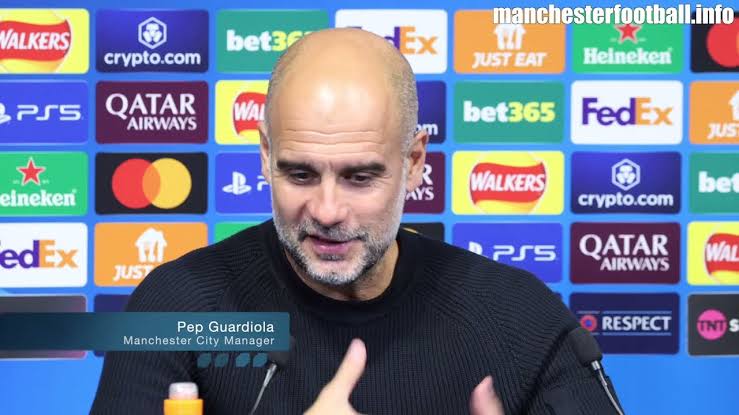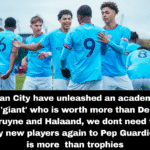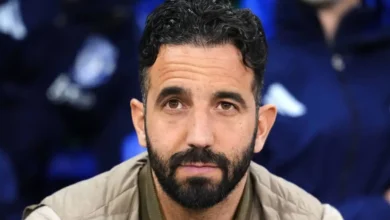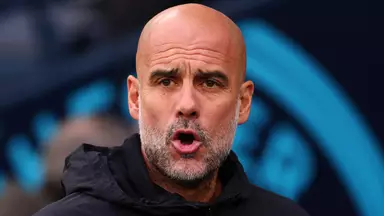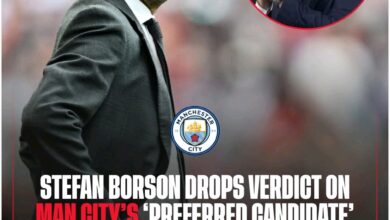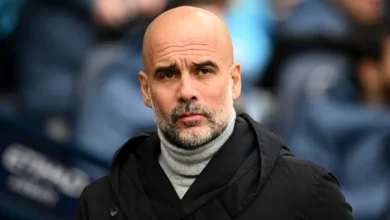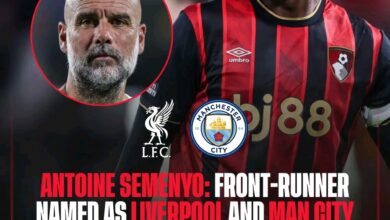Pep Guardiola names the one thing he will ‘always regret’ at Man City this season
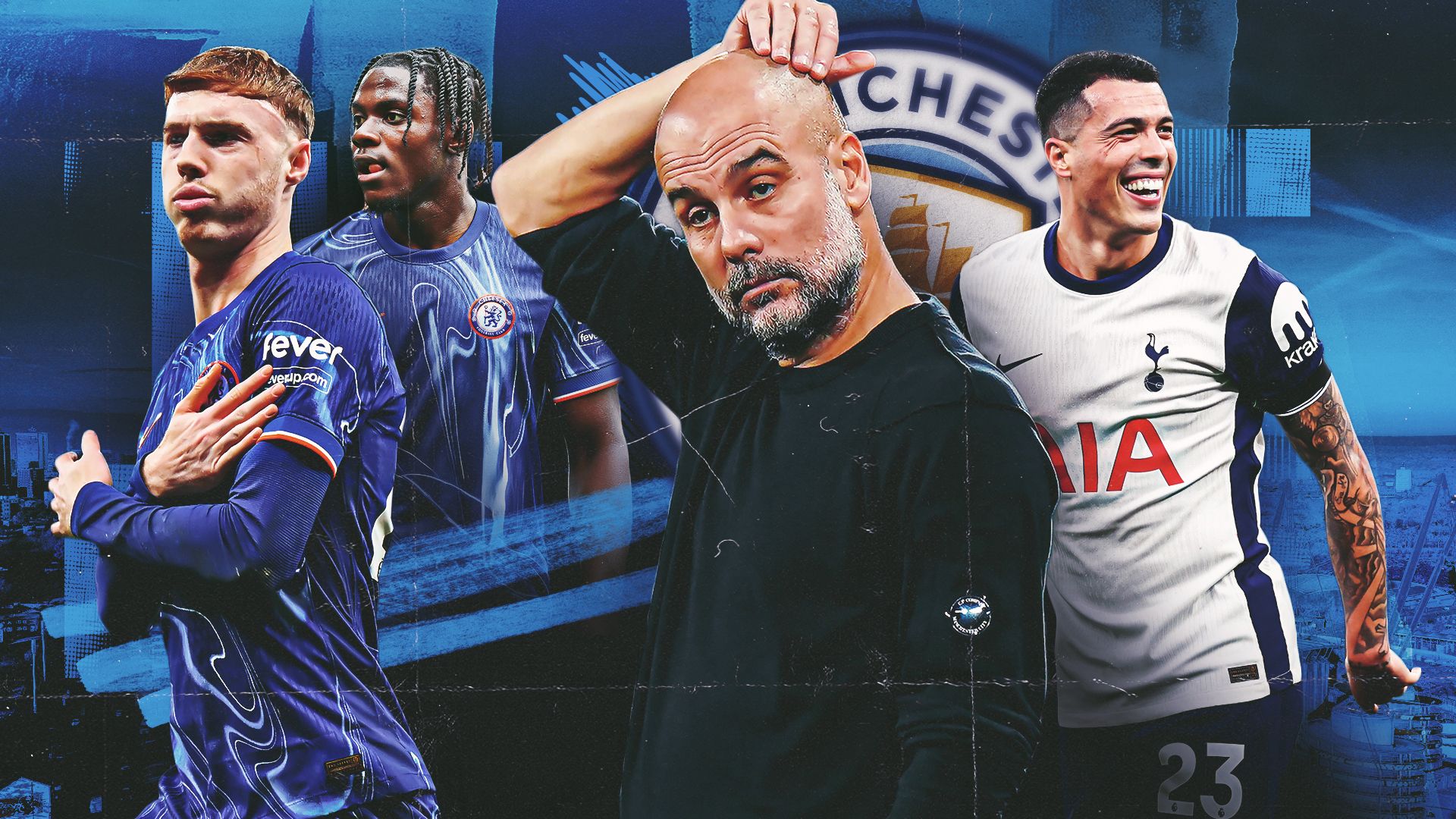
Manchester City manager Pep Guardiola has admitted that he will “always regret” not giving more playing time to the club’s homegrown talents this season. The revelation came after City’s dramatic FA Cup victory over Bournemouth, in which 20-year-old academy star Nico O’Reilly played a pivotal role in turning the game around. O’Reilly’s second-half introduction proved decisive, as he contributed two assists that sent City to Wembley.
Despite his wealth of experience and tactical brilliance, Guardiola is reflecting on the season with a mix of pride and remorse. While Manchester City remains a dominant force in English and European football, the Spaniard is aware that some of his younger players deserved more opportunities.
City found themselves trailing 1-0 at halftime against Bournemouth, a team that has proven to be a tough opponent in recent encounters. Recognizing the need for a change, Guardiola introduced O’Reilly, who immediately provided a spark to City’s midfield. His quick decision-making and fearless approach disrupted Bournemouth’s defensive setup, allowing City to take control of the game. With two assists, he played a crucial role in securing their place in the FA Cup semi-finals.
After the match, Guardiola was effusive in his praise for O’Reilly, acknowledging the impact he had on the team’s performance. However, his excitement was tempered by a lingering sense of regret.
“I learn from my period in Barcelona and here that academy players have one incredible attribute: they are not scared,” Guardiola said. “They adapt so quickly. When I see James McAtee, Nico O’Reilly, or Rico Lewis, I always think—why didn’t I give them more minutes this season? It’s something I will always regret.”
The Balance Between Experience and Youth
Guardiola has often relied on experienced players in crucial games, a strategy that has brought him immense success at City. In the match against Bournemouth, he started seasoned midfielders Bernardo Silva, Mateo Kovacic, Kevin De Bruyne, and Ilkay Gundogan. While these players have been instrumental in City’s dominance, Guardiola now acknowledges that integrating younger players earlier in the season might have brought additional benefits.
“In difficult moments, you sometimes hesitate to put young players in because of the pressure they might face,” Guardiola admitted. “Maybe that was a mistake. These young players understand our system, they know the environment, and they can thrive if given the chance.”
Manchester City’s campaign has not been without its struggles. The team has dealt with injuries to key players, inconsistent performances, and periods of uncertainty. Guardiola himself has shouldered much of the responsibility for the team’s difficulties, openly admitting that he could have made better decisions at crucial moments.
“The biggest problem this season was the lack of heart and passion in some moments,” he reflected. “After we lost to Bournemouth in the Premier League last season, something changed. It wasn’t just one issue; there were many. And I put myself first on the list. I should have made certain decisions earlier. I wasn’t able to find solutions as quickly as I should have.”
City’s inconsistency in some matches led to concerns about whether they could maintain their status as England’s dominant club. However, the victory against Bournemouth in the FA Cup provided a much-needed boost. Guardiola now hopes that this win can be a turning point for the remainder of the season.
Guardiola’s admission about regretting his handling of young players sheds light on a broader debate in football: the balance between developing youth and maintaining a winning formula. Manchester City’s academy has produced some exceptional talents in recent years, including Phil Foden and Rico Lewis, but breaking into the first team remains a challenge.
“The academy is full of talented players,” Guardiola said. “But sometimes, as a manager, you hesitate. You think about the pressure, the expectations, the stakes in big matches. Maybe I was too cautious.”
In previous seasons, City’s squad depth has allowed Guardiola to rotate players more freely. However, with injuries to key players this season, he often relied on established stars. Now, as the season nears its end, he acknowledges that giving more minutes to players like O’Reilly could have helped City navigate difficult moments more effectively.
Guardiola’s reflection on his handling of youth players raises an important question—will he change his approach moving forward? With City still competing on multiple fronts, he has an opportunity to give more minutes to emerging talents.
“Hopefully, until the end of the season, we can change and learn from that,” he said. “We need to prepare not just for this campaign but for the future.”
City’s philosophy has always been centered around long-term success. While they continue to sign world-class players, their investment in youth development remains a crucial part of their strategy. Guardiola’s words suggest that the club could see more academy graduates feature prominently in the coming seasons.
Guardiola’s comments also highlight a broader issue in modern football. Many top clubs invest heavily in their academies but struggle to integrate young players into the first team. The pressure to win silverware often forces managers to rely on experienced professionals, leaving talented youngsters with limited opportunities.
Manchester City’s case is particularly interesting. The club boasts one of the best academies in England, yet many of their young prospects end up leaving due to a lack of first-team opportunities. Jadon Sancho, for example, left City’s academy for Borussia Dortmund, where he became a star before moving to Manchester United.
Guardiola’s acknowledgment of this issue suggests that he is aware of the need for change. Integrating more academy players could not only benefit City’s long-term future but also provide fresh energy and enthusiasm to the squad.
Following Guardiola’s remarks, Manchester City fans have expressed mixed reactions. While many appreciate his honesty, some believe he should have acted sooner. The success of players like Phil Foden has shown that City’s academy talents can thrive at the highest level, and fans are eager to see more youngsters given a chance.
Social media was filled with discussions about O’Reilly’s performance and what it could mean for City’s future. Many supporters believe that players like him deserve more regular opportunities, especially in domestic cup competitions and lower-stakes Premier League matches.
Looking ahead, Guardiola has a chance to rectify his regrets. City remains in contention for multiple trophies, and as the season progresses, there could be opportunities for young players to feature more prominently. Whether Guardiola follows through on his words remains to be seen, but one thing is clear—Nico O’Reilly’s performance has left a lasting impression.
Pep Guardiola’s admission of regret regarding his handling of Manchester City’s young players is a rare moment of self-criticism from one of football’s most successful managers. His acknowledgment of the importance of youth development highlights a key challenge in modern football—balancing immediate success with long-term planning.
As City continues its pursuit of trophies, Guardiola has an opportunity to integrate more young talent into the squad. Whether this season serves as a learning experience for the legendary coach will become evident in the coming months. But for now, one thing is certain—Nico O’Reilly’s breakout performance has sparked a conversation that could shape the future of Manchester City’s approach to youth development.
